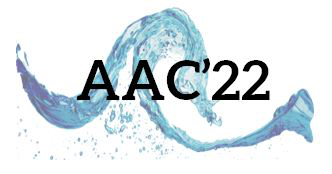Speaker
Description
Recently, a novel concept of Laser-Ion Lensing and Acceleration (LILA) [1] has been introduced for highly-efficient generation of monoenergetic low-emittance ion beams. The LILA scheme is based on the illumination of a solid-density target with radially-dependent thickness by an intense circularly polarized (CP) laser pulse, resulting in simultaneous acceleration and focusing of proton beams to a micron-sized spot. We extend the LILA concept to include elliptically polarized (EP) laser pulses. While it is well-known that elliptically polarized (EP) laser pulses cannot be used for radiation pressure acceleration (RPA) of planar targets because of strong electron heating [2], we find that the situation is qualitatively different for non-planar rapidly-converging targets. Three-dimensional PIC simulations, backed up by simple theoretical estimates, are used to optimize the target thickness and shape to realize the LILA scheme with EP laser pulses. Unexpectedly, even linearly polarized laser pulses can efficiently generate low-emittance focused ion beams when non-uniform thickness targets are used, with overall laser-to-ions energy conversion comparable to those achievable with CP laser pulses.
Acknowledgments
This work was supported by the NSF Award PHY-2109087. Authors would like to thank Texas Advance Computing Center for providing HPC resources.

